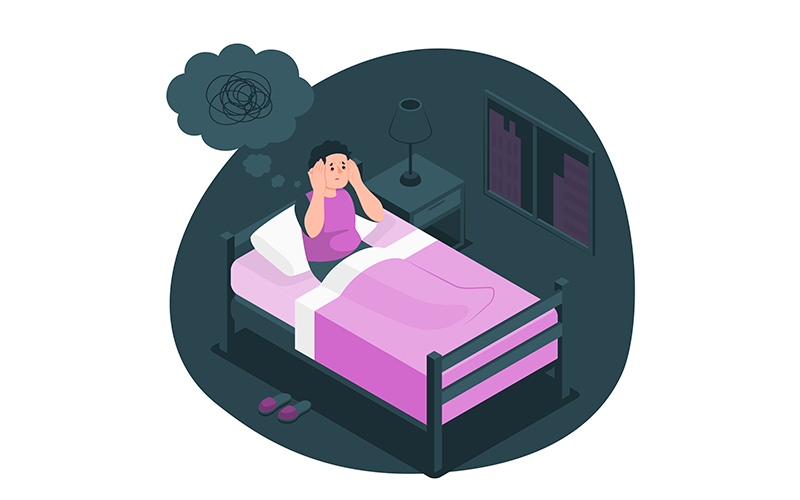Sleeping Troubles and Mental Struggles

Sleeping Troubles, Mental Struggles: The Interplay Unveiled
Imagine having a peaceful sleep that wakes you up feeling energised and prepared to take on the day. Contrast that with a night of tossing, turning, and sleeplessness, leaving you, irritable, and emotionally drained.
Sleep appears as a cornerstone in the complex web of mental health, one that is sometimes disregarded but has a powerful impact. Our mental health is intricately woven together by the quantity and quality of sleep, which is sometimes overlooked in the rush of everyday living. Let's explore this fascinating connection between mental wellness and sleep. The significant relationship between sleep and mental health has long been confirmed by scientific studies. Many mental health issues are linked to disturbed sleep patterns, uneven sleep duration, and poor quality of sleep. Sleep disruptions can have an impact on or worsen mental health conditions.
The Two-Way Street: Sleep and Mental Health
The relationship between sleep and mental health isn't unidirectional; it's a complex, bidirectional interaction. Mental health issues can disrupt sleep patterns, leading to insomnia, hypersomnia, or irregular sleep-wake cycles. On the flip side, poor sleep can worsen existing mental health conditions or even act as a trigger for their onset.
Consider anxiety, for instance. Sleep disruptions can heighten feelings of anxiety, creating a cycle where increased anxiety further disrupts sleep, perpetuating the cycle. Similarly, insufficient sleep can impair cognitive functions, exacerbating symptoms of depression or making it challenging to manage emotions effectively.
There are several biological, psychological, and social reasons behind this interaction. Sleep affects neurotransmitter levels, controls stress hormones in the body, and affects how emotions are processed and managed. Lack of sleep impacts those regions of the brain that control and regulate mood, potentially heightening emotional reactivity and impairing decision-making abilities.
In addition, the brain organizes memories and handles emotions when we sleep. Insufficient sleep disrupts these functions, impacting cognitive performance, concentration, and emotional stability and focus. These processes are interfered with by sleep deprivation, which affects emotional stability, cognitive performance, and focus.
In the mosaic of mental health, sleep emerges as a potent yet often overlooked piece. Prioritizing quality sleep isn't merely a luxury; it's a foundational pillar for nurturing mental well-being. By recognizing and addressing the intricate link between sleep and mental health, individuals can embark on a journey toward improved mental resilience, emotional balance, and a fulfilling life.








